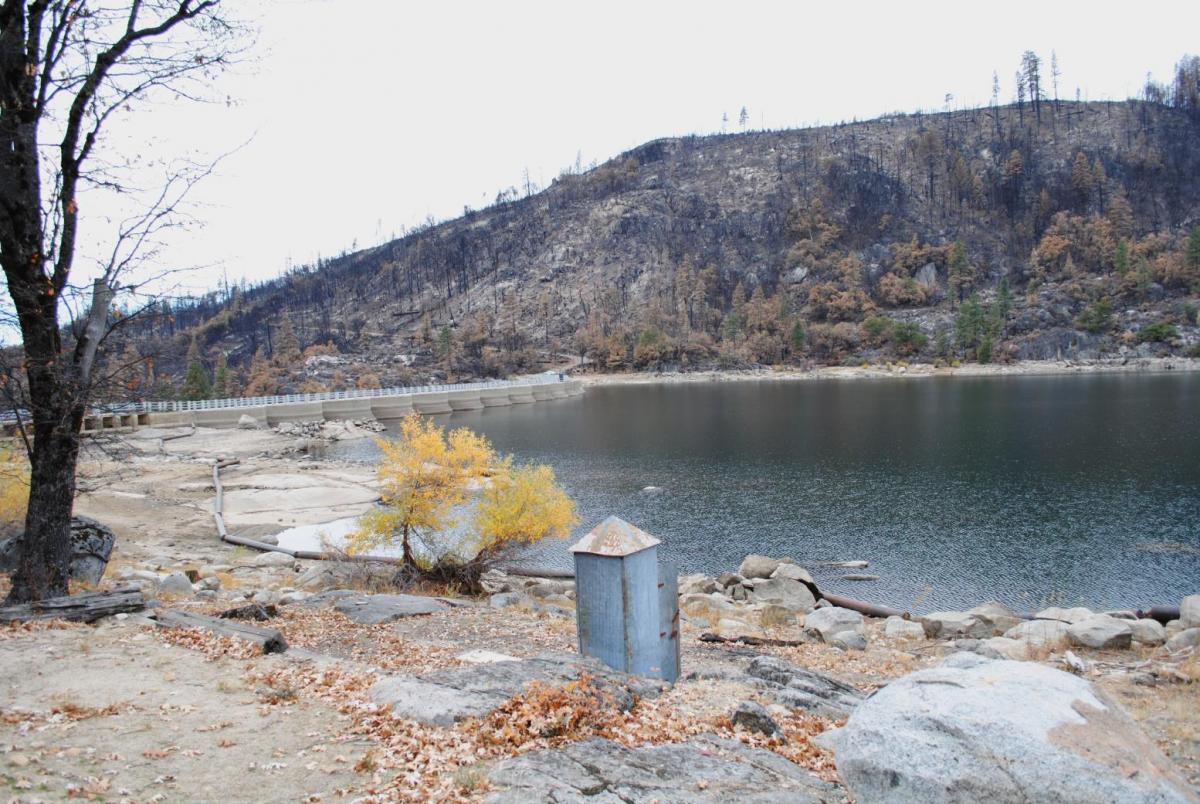 GOLDEN, Colo., Nov. 22, 2013 – An NSF RAPID proposal was recently awarded to Colorado School of Mines researchers to investigate the potential impacts on water quality in the Rim Fire area near Yosemite National Park.
GOLDEN, Colo., Nov. 22, 2013 – An NSF RAPID proposal was recently awarded to Colorado School of Mines researchers to investigate the potential impacts on water quality in the Rim Fire area near Yosemite National Park.
The Rim Fire, the third largest fire in California history, was started on Aug. 17, 2013, and burned for nearly 10 weeks destroying 402 square miles of forest and wildlife habitat. It is the largest fire in the recorded Sierra Nevada history and cost more than $127 million to fight -- $4.3 million will be used towards watershed treatment to mitigate potential downstream impacts.
The research, led by Mines Civil and Environmental Engineering Professor Terri S. Hogue along with her colleagues John McCray, Richard Luthy, and Alexis Stichler, Chris Higgins, and Alicia M. Kinoshita, will involve monitoring reservoir and regional stream system water quality as well as alterations in snow patterns and associated spring runoff.
The Rim Fire threatened the O’Shaughnessy Dam and reservoir in the Hetch Hetchy Valley, which supplies water for the San Francisco Bay Area. It also has the potential to impact the Tuolumne River water system, which supplies water to San Francisco and 29 other wholesale buyers in San Mateo, Santa Clara, and Alameda counties.
RAPID proposals allow quick-response research on natural or anthropogenic disasters and similar unanticipated events. The project is also supported by funds from the NSF Engineering Research Center on Urban Water Infrastructure ReNUWIt.
Contact:
Karen Gilbert, Director of Public Relations, Colorado School of Mines / 303-273-3541 / kgilbert@mines.edu
Kathleen Morton, Communications Coordinator, Colorado School of Mines / 303-273-3088 / kmorton@mines.edu
